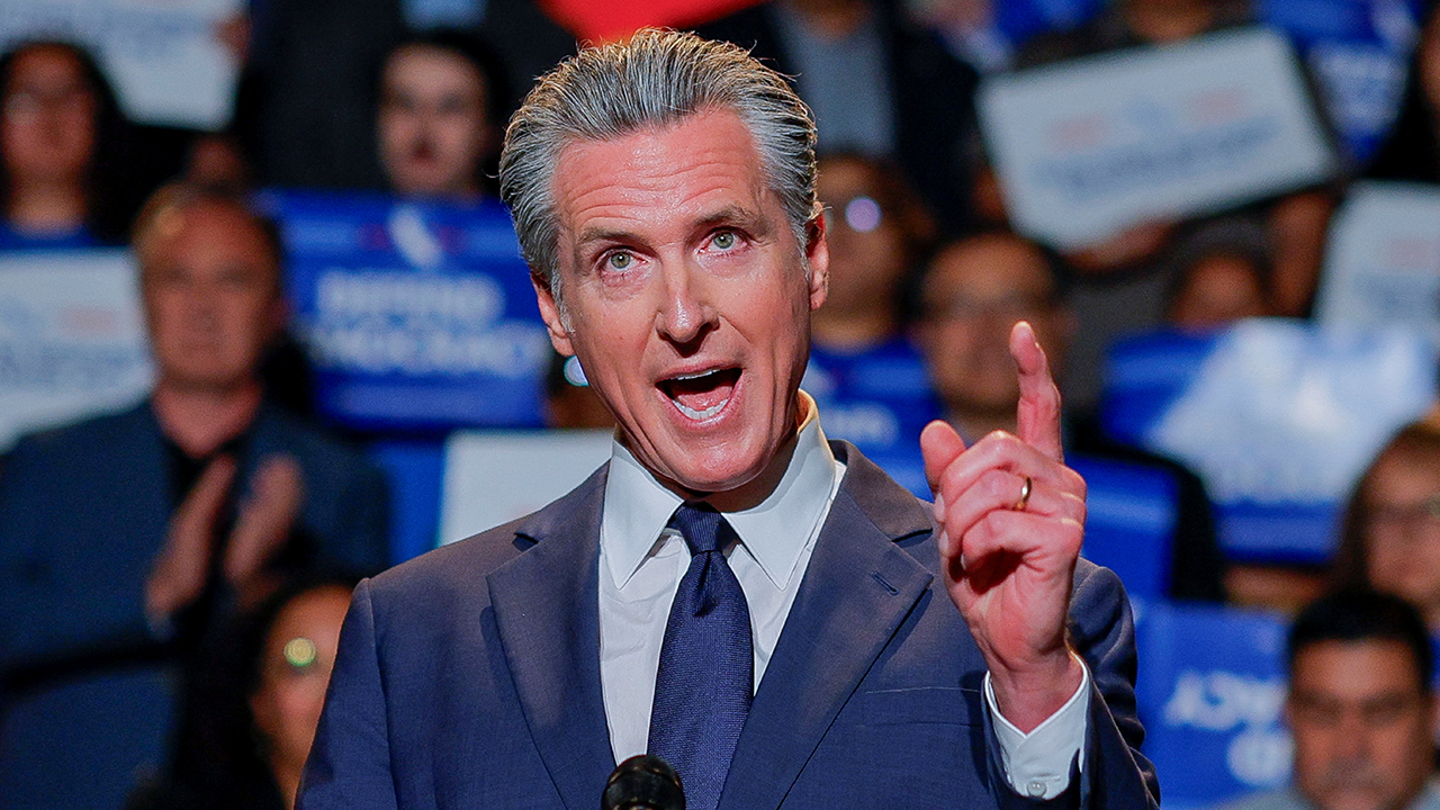
'Leftist' taxpayer-funded academy sparks backlash after moving against Trump's rollback of key regulation
Entities mentioned:
- National Academies of Sciences, Engineering, and Medicine (NASEM): Influence, Professional pride, Legacy
- Environmental Protection Agency (EPA): Control, Duty, Security
- Shirley M. Tilghman: Influence, Professional pride, Righteousness
- Trump administration: Power, Competitive spirit, Freedom
- Arabella Advisors: Influence, Power, Control
- Lee Zeldin: Competitive spirit, Ambition, Freedom
Article Assessment:
Credibility Score: 65/100
Bias Rating: 75/100 (Lean Right)
Sentiment Score: 30/100
Authoritarianism Risk: 45/100 (Mixed/Neutral)
Bias Analysis:
The article leans right, evidenced by its framing of NASEM as 'leftist' and emphasis on conservative critiques. It prominently features perspectives from right-leaning think tanks and individuals, while giving less space to opposing viewpoints.
Key metric: Environmental Regulation Impact on Economic Growth
As a social scientist, I analyze that this article highlights the complex interplay between scientific institutions, political agendas, and environmental policy. The fast-tracking of NASEM's climate review appears to be a strategic move to counter the Trump administration's efforts to roll back Obama-era climate regulations. This situation underscores the politicization of scientific research and its potential impact on environmental policy and economic growth. The involvement of various entities with different motivations creates a multifaceted debate around the balance between environmental protection and economic interests. The controversy surrounding NASEM's funding sources and potential bias raises questions about the objectivity of scientific bodies and their role in shaping public policy. This debate is likely to have significant implications for future environmental regulations and their economic consequences.

Ilhan Omar erupts at own party for reneging on socialist candidate's endorsement: 'Inexcusable'
Entities mentioned:
- Ilhan Omar: Righteousness, Indignation, Unity
- Democratic-Farmer-Labor Party (DFL): Control, Power, Self-preservation
- Omar Fateh: Ambition, Recognition, Influence
- Richard Carlbom: Control, Power, Unity
- Jacob Frey: Ambition, Self-preservation, Power
Article Assessment:
Credibility Score: 70/100
Bias Rating: 65/100 (Lean Right)
Sentiment Score: 30/100
Authoritarianism Risk: 35/100 (Generally Democratic)
Bias Analysis:
The article leans slightly right, focusing more on the internal conflicts of the Democratic Party. It gives more space to Omar's criticisms and frames the issue as a problem for Democrats, potentially appealing to conservative readers.
Key metric: Political Party Unity
As a social scientist, I analyze that this article highlights significant internal divisions within the Democratic Party, specifically in Minnesota. The revocation of Omar Fateh's endorsement by the DFL party leadership reveals a struggle between progressive and moderate factions. This conflict could potentially impact voter trust, party cohesion, and electoral success. The public disagreement between Rep. Ilhan Omar and the DFL leadership underscores the challenges faced by the Democratic Party in maintaining unity while accommodating diverse ideological perspectives. This incident may have broader implications for the party's strategy in balancing progressive and moderate voices, particularly in urban centers and among younger, more diverse voters.

Longtime Trump ally formally succeeds Whatley as Republican Party chair
Entities mentioned:
- Joe Gruters: Loyalty, Ambition, Power
- Donald Trump: Control, Power, Influence
- Michael Whatley: Ambition, Loyalty, Professional pride
- Republican National Committee (RNC): Unity, Control, Power
- Democratic National Committee (DNC): Competitive spirit, Moral outrage, Opposition
Article Assessment:
Credibility Score: 65/100
Bias Rating: 65/100 (Lean Right)
Sentiment Score: 55/100
Authoritarianism Risk: 55/100 (Mixed/Neutral)
Bias Analysis:
The article leans right, primarily due to its focus on Republican perspectives and strategies, with limited Democratic viewpoints. The source (Fox News) and the exclusive nature of the interview suggest a preference for Republican narratives.
Key metric: Political Party Strength
As a social scientist, I analyze that this article highlights the continuing consolidation of power within the Republican Party under Donald Trump's influence. The appointment of Joe Gruters, a longtime Trump ally, as RNC chair further cements Trump's control over the party apparatus. This transition is likely to impact the party's strategy, fundraising, and messaging leading into the midterm elections. The emphasis on election integrity and voter registration suggests a focus on base mobilization and potential challenges to electoral processes. The contrast between the RNC's robust fundraising and the DNC's criticism of Gruters indicates heightened partisan tensions and diverging political narratives heading into future elections.

John Bolton blasted by Trump ally Roger Stone, who faced Biden FBI raid: 'Karma is a b----'
Entities mentioned:
- Roger Stone: Revenge, Loyalty, Self-preservation
- John Bolton: Ambition, Self-preservation, Professional pride
- Donald Trump: Power, Loyalty, Control
- FBI: Duty, Justice, Control
Article Assessment:
Credibility Score: 65/100
Bias Rating: 70/100 (Lean Right)
Sentiment Score: 30/100
Authoritarianism Risk: 55/100 (Mixed/Neutral)
Bias Analysis:
The article leans right due to its focus on pro-Trump figures and narratives. It presents Stone's perspective prominently while providing limited context on Bolton's side or the reasons for the FBI raid.
Key metric: Political Polarization Index
As a social scientist, I analyze that this article highlights the increasing polarization within the Republican party and the broader political landscape. The conflict between Roger Stone, a Trump loyalist, and John Bolton, a former Trump advisor turned critic, exemplifies the deepening divides. Stone's gloating over Bolton's FBI raid demonstrates how personal vendettas and loyalty to Trump are shaping political discourse. This event likely exacerbates existing tensions within the GOP and reinforces tribalism among voters, potentially increasing political polarization.

Vance heads to Georgia to tout GOP tax cuts — and take aim at Sen. Jon Ossoff
Entities mentioned:
- JD Vance: Ambition, Influence, Power
- Jon Ossoff: Self-preservation, Justice, Duty
- Will Martin: Loyalty, Competitive spirit, Influence
- Brian Kemp: Self-preservation, Ambition
- Republican Party: Power, Control, Influence
- Democratic Party: Power, Justice, Influence
Article Assessment:
Credibility Score: 70/100
Bias Rating: 55/100 (Center)
Sentiment Score: 45/100
Authoritarianism Risk: 30/100 (Generally Democratic)
Bias Analysis:
The article presents views from both Republican and Democratic sides, attempting to balance perspectives. However, slightly more space is given to Republican messaging, with more detailed explanations of their tax plan.
Key metric: Economic Inequality
As a social scientist, I analyze that this article highlights the ongoing political battle over tax policy and its impact on economic inequality. The GOP's tax law, championed by Vice President Vance, is presented as beneficial for middle-class families, while Democrats, represented by Senator Ossoff, argue it primarily benefits the wealthy. This debate directly affects economic inequality by potentially altering the distribution of wealth through tax policy. The article also underscores the importance of Georgia as a battleground state, with both parties vying for influence over public opinion on economic issues. The contrasting narratives presented by Vance and Ossoff reflect broader ideological differences on taxation and government spending, which have significant implications for economic inequality in the United States.

I made memes for the White House. Here’s what I learned
Entities mentioned:
- President Donald Trump: Power, Influence, Recognition
- White House Digital Team: Ambition, Competitive spirit, Influence
- Gavin Newsom: Competitive spirit, Ambition, Influence
- Kaelan Dorr: Determination, Professional pride, Influence
Article Assessment:
Credibility Score: 55/100
Bias Rating: 75/100 (Lean Right)
Sentiment Score: 75/100
Authoritarianism Risk: 65/100 (Authoritarian Tendencies)
Bias Analysis:
The article is written from a first-person perspective of a former Trump administration official, presenting a clearly pro-Trump stance. While it provides insider information, it lacks critical analysis or alternative viewpoints, leaning heavily towards promoting the administration's strategies.
Key metric: Political Engagement of Young Americans
As a social scientist, I analyze that this article highlights a significant shift in political communication strategies, particularly targeting younger demographics. The White House's aggressive use of memes and viral content represents a deliberate attempt to increase political engagement among 18-34 year olds, a traditionally less politically active group. This approach blurs the line between entertainment and political messaging, potentially increasing youth voter turnout but also risking the oversimplification of complex policy issues. The reported success in follower growth and video views suggests a potential increase in political awareness among younger Americans, though it's unclear whether this translates to meaningful civic engagement or merely surface-level interaction with political content.

Elon Musk halts plans for new political party, prioritizing business instead: report
Entities mentioned:
- Elon Musk: Ambition, Influence, Self-preservation
- America Party: Unity, Freedom, Change
- Republican Party (GOP): Power, Control, Self-preservation
- JD Vance: Ambition, Power, Loyalty
- Donald Trump: Power, Control, Revenge
- Department of Government Efficiency: Duty, Professional pride, Control
Article Assessment:
Credibility Score: 65/100
Bias Rating: 55/100 (Center)
Sentiment Score: 45/100
Authoritarianism Risk: 35/100 (Generally Democratic)
Bias Analysis:
The article presents a relatively balanced view, incorporating multiple perspectives and sources. However, there's a slight lean towards emphasizing the drama and personal conflicts, which is typical of center-right reporting on political figures.
Key metric: Political Polarization Index
As a social scientist, I analyze that this article highlights the complex interplay between business interests and political ambitions in the American political landscape. Musk's reported decision to halt plans for a new political party reflects the challenges of disrupting the established two-party system. The apparent reconciliation between Musk and Trump, after a period of public conflict, suggests a strategic realignment that could impact political discourse and voter sentiment. This development may contribute to maintaining the status quo in terms of political polarization, as the potential for a significant third-party option seems to have diminished. The article also underscores the influence of high-profile individuals in shaping public opinion and political narratives through social media platforms.

Giving Putin the Donbas would hand Moscow powerful leverage over Kyiv’s financial survival
Entities mentioned:
- Volodymyr Zelenskyy: Determination, Loyalty, Self-preservation
- Vladimir Putin: Power, Control, Ambition
- Elina Beketova: Professional pride, Duty, Influence
- Grace Mappes: Professional pride, Duty, Influence
- Russia: Power, Control, Greed
- Ukraine: Self-preservation, Freedom, Unity
Article Assessment:
Credibility Score: 75/100
Bias Rating: 45/100 (Center)
Sentiment Score: 35/100
Authoritarianism Risk: 25/100 (Generally Democratic)
Bias Analysis:
The article presents a balanced view, incorporating perspectives from multiple experts and providing context. While it leans slightly towards the Ukrainian perspective, it maintains a generally neutral tone in presenting facts and analysis.
Key metric: Economic Stability
As a social scientist, I analyze that this article highlights the critical importance of the Donbas region to Ukraine's economic survival and Russia's strategic interests. The region's vast natural resources, including coal, salt, and gas, represent significant economic leverage. Conceding this area to Russia would not only weaken Ukraine's defensive capabilities but also severely impact its ability to finance post-war reconstruction. The estimated $524 billion needed for recovery underscores the magnitude of Ukraine's economic challenges. The article suggests that Russia's proposal for Ukraine to cede the Donbas is not a genuine compromise but a strategic maneuver to gain control over critical resources and weaken Ukraine's position. This situation directly impacts Ukraine's economic stability, a key performance metric for the country's future viability and independence.

Duffy’s DOT accuses Biden, Buttigieg of inflating air traffic controller pipeline: ‘Juiced the numbers’
Entities mentioned:
- Trump administration's Department of Transportation: Professional pride, Security, Control
- Biden administration: Ambition, Recognition, Influence
- Pete Buttigieg: Self-preservation, Competitive spirit, Righteousness
- Sean Duffy: Duty, Professional pride, Security
- Federal Aviation Administration (FAA): Professional pride, Safety, Duty
Article Assessment:
Credibility Score: 65/100
Bias Rating: 70/100 (Lean Right)
Sentiment Score: 35/100
Authoritarianism Risk: 40/100 (Generally Democratic)
Bias Analysis:
The article leans right, evidenced by more extensive quotes from Trump administration officials and a more critical tone towards the Biden administration's actions. While it includes some rebuttals from Buttigieg's team, these are presented more defensively.
Key metric: Air Traffic Controller Staffing Levels
As a social scientist, I analyze that this article highlights a contentious issue in air traffic controller recruitment and training standards between the Trump and Biden administrations. The Trump administration claims to be raising standards to improve completion rates at the training academy, while accusing the Biden administration of lowering standards to inflate recruitment numbers. This dispute impacts air traffic controller staffing levels, a critical component of air travel safety and efficiency. The conflicting claims and changes in qualification criteria suggest a politicization of what should be a strictly professional and safety-oriented process. This situation may lead to public uncertainty about the quality and sufficiency of air traffic control staffing, potentially affecting confidence in air travel safety.

Newsom-style redistricting efforts critiqued by California Democrats as recently as July, statements show
Entities mentioned:
- Gov. Gavin Newsom: Power, Control, Ambition
- California Democrats: Power, Control, Self-preservation
- California Republicans: Justice, Righteousness, Self-preservation
- Citizens' Redistricting Commission: Duty, Fairness, Transparency
- Steve Hilton: Justice, Competitive spirit, Ambition
Article Assessment:
Credibility Score: 75/100
Bias Rating: 65/100 (Lean Right)
Sentiment Score: 35/100
Authoritarianism Risk: 55/100 (Mixed/Neutral)
Bias Analysis:
The article leans slightly right, evidenced by its focus on Republican critiques and extensive quoting of Democratic inconsistencies. While it presents factual information, the framing appears to favor the Republican perspective on the issue.
Key metric: Electoral Integrity Index
As a social scientist, I analyze that this article highlights a significant shift in California Democrats' stance on redistricting, potentially impacting the state's Electoral Integrity Index. The proposed change from an independent commission to politician-led redistricting could be seen as a move to consolidate power, contradicting previous statements supporting independent commissions. This shift raises concerns about the fairness and transparency of the electoral process, potentially eroding public trust in democratic institutions. The Republicans' pushback and the citing of Democrats' past statements supporting independent commissions add a layer of political conflict and accountability to the issue. The involvement of high-profile figures like Gov. Newsom and the potential for legal challenges further underscore the significance of this development for California's electoral system and its broader implications for democratic processes.